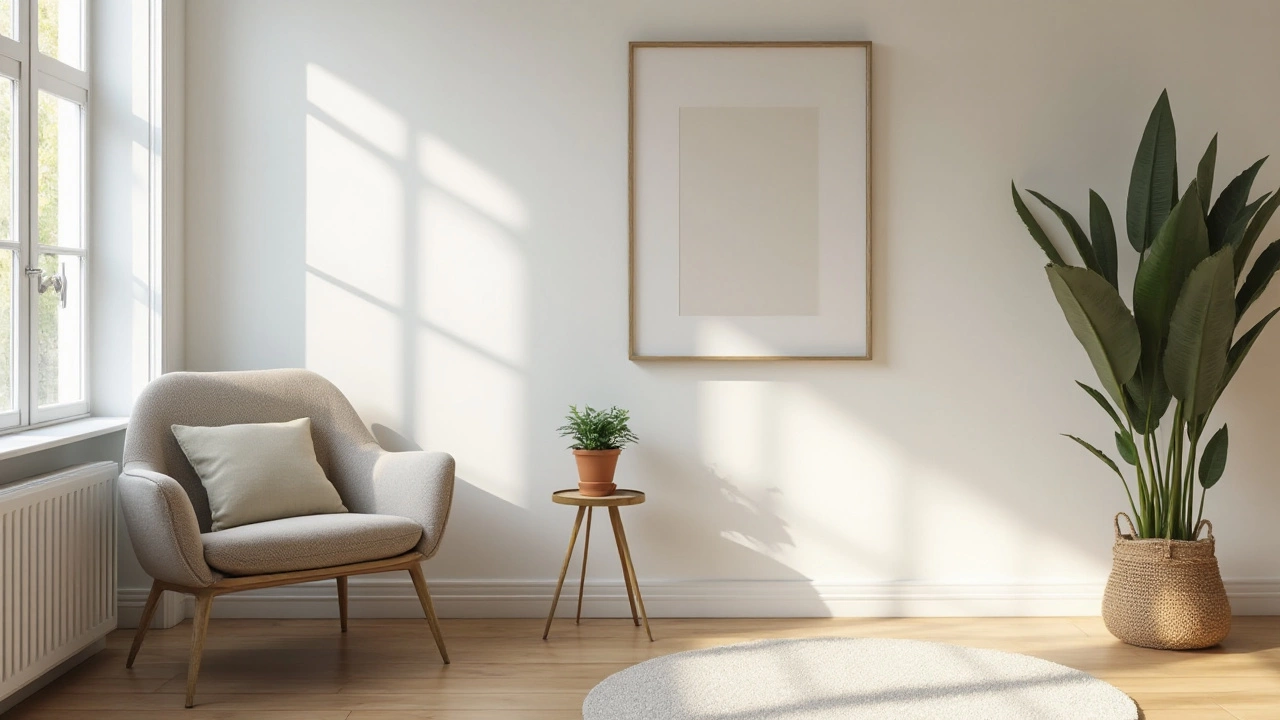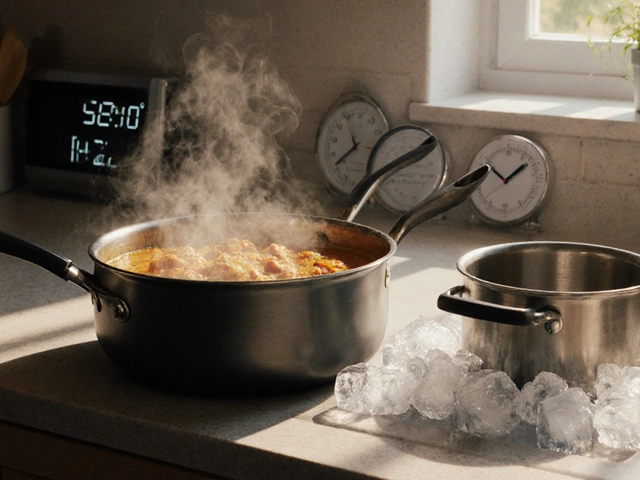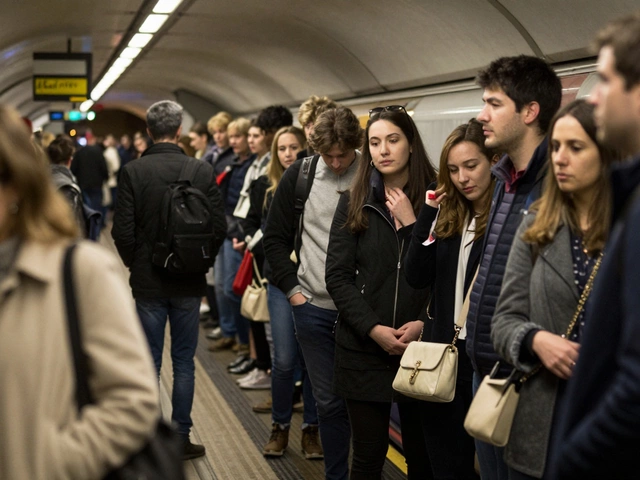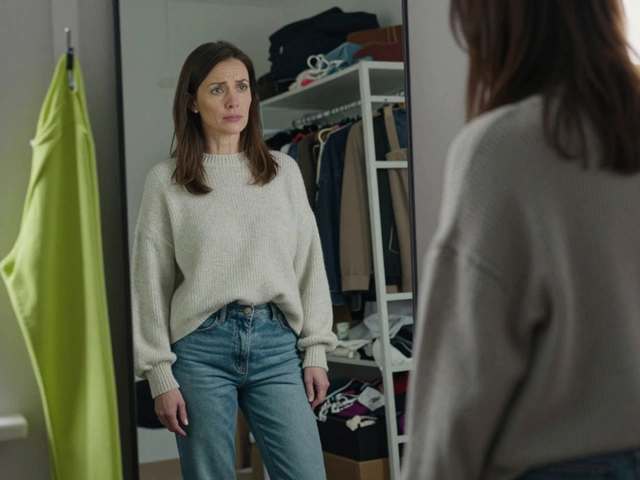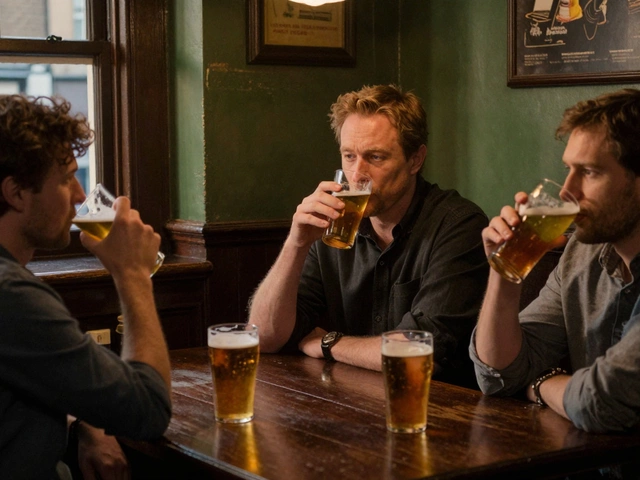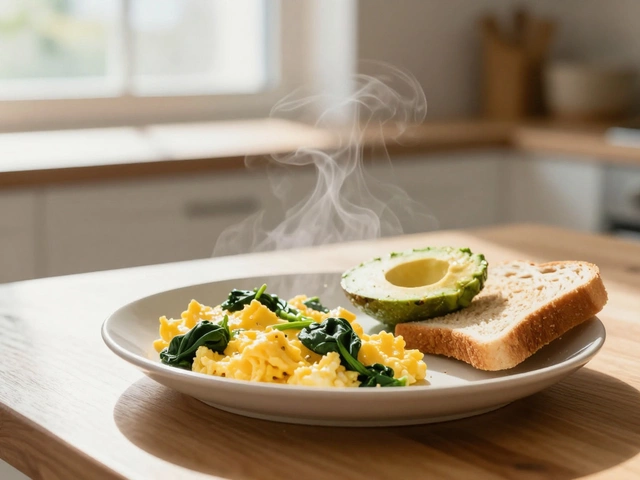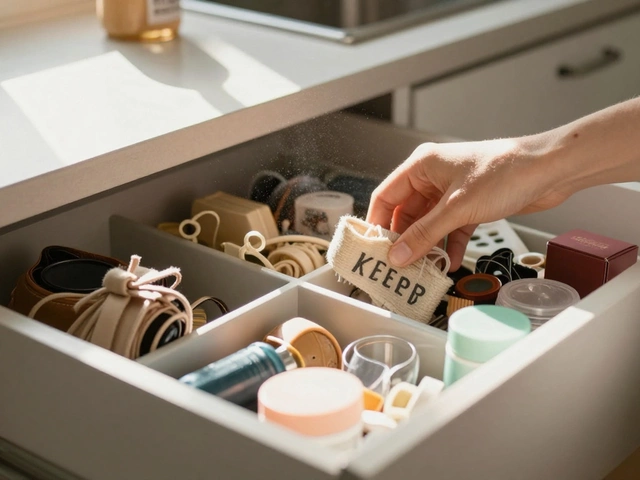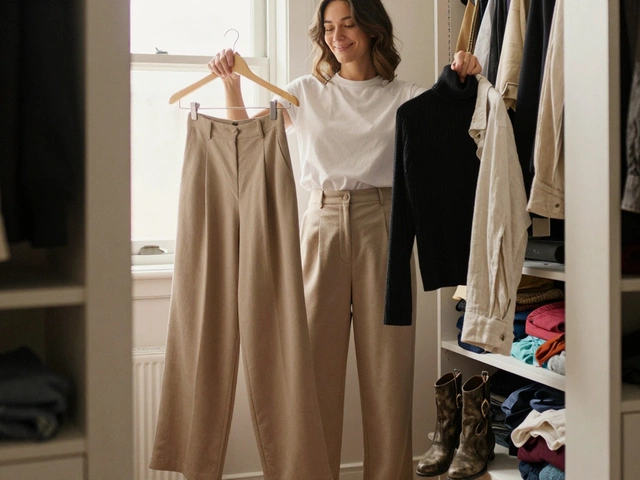In a world where consumerism and chaos often prevail, many are turning to minimalism as a beacon of clarity and simplicity. At the heart of this movement lies Rule 406, a guiding principle that calls for mindfulness and intentional living. With its roots in ancient philosophy and modern sensibility, Rule 406 offers a fresh perspective on how to reshape your daily life.
Embracing this rule means cutting through the noise and focusing on the essentials, allowing space for the truly valuable things to flourish. It’s not just about owning less but living with purpose and meaning. If you've ever felt overwhelmed by the clutter around you—be it physical, mental, or emotional—learning about Rule 406 might just be the antidote you've been seeking. Dive in and discover how applying this rule can transform your life into a serene and fulfilling journey.
- Understanding the Philosophy of Minimalism
- The Origins and Meaning of Rule 406
- Practical Steps to Implement Rule 406
- Benefits of Embracing Minimalism
- Real-Life Success Stories and Inspirations
Understanding the Philosophy of Minimalism
Minimalism is more than just a decorating style; it's a foundational approach to living that promotes simplicity and clarity. Originating as a response to the excesses of post-war consumer culture, the minimalism lifestyle emphasizes reducing possessions and focusing on the essential aspects of life. This isn't simply about owning fewer things, rather, it's about reassessing priorities and decluttering both the physical and mental spaces. By understanding this philosophy, individuals can more easily access a lifestyle that is less about acquiring and more about experiencing and valuing what truly matters.
At its core, minimalism encourages mindfulness. When adopting a minimalist lifestyle, one develops an acute awareness of their wants versus their needs. The practice of discernment helps in making decisions that resonate with one's true self, rather than being swayed by societal pressures and trends. When one embraces the minimalistic mindset, they often find a profound sense of liberation and peace. The constant pursuit of newer, better possessions is replaced by a mindful appreciation of present resources.
Minimalism also fosters a deeper connection with people. By stripping away the superfluous, minimalists find it easier to focus on relationships that add genuine value to their lives. This philosophical approach discourages the superficial and promotes richer, more authentic interactions. When you eliminate unnecessary distractions, you open up space for more meaningful connections. As author Anthony Ongaro wisely noted,
"Minimalism is the intentional promotion of the things we most value and the removal of anything that distracts us from it."
Moreover, minimalism’s benefits are not just intangible. Studies have shown that clutter can significantly increase stress levels, distracting us from important tasks and reducing productivity and mental health. By adopting a minimalist approach, many have reported substantial decreases in stress and anxiety, along with enhanced mental lucidity. According to a UCLA study, clutter is directly linked to elevated levels of the stress hormone cortisol, especially in women.
To truly grasp minimalism, it helps to break it down into actionable steps. Start by assessing your environment and identifying items that do not serve a purpose or bring joy. Consider organizing these items into categories: keep, donate, or recycle. By systematically addressing clutter, you foster an environment conducive to creativity and tranquility. Implementing minimalism does not require drastic reductions. Instead, small, consistent changes can lead to a profound transformation over time. Recognize that the journey is unique for everyone, and there is no one-size-fits-all solution. This understanding empowers individuals to curate a life characterized by intentionality and purpose.
For those adopting Rule 406 within minimalism, the journey involves continuous learning and adaptation. It is not a one-time project but a lifelong practice of prioritizing the essential things. This philosophy calls into question the automatic decisions and habits that clutter our lives and minds, helping us pivot towards genuinely meaningful endeavors. Embrace minimalism, not just as an aesthetic choice, but as a guiding life philosophy.
The Origins and Meaning of Rule 406
Understanding Rule 406 begins with delving into the heart of minimalism. Minimalism isn't a modern concoction; it has its roots in various philosophies and art movements. Philosophically, it is often linked to principles of Buddhism and Stoicism, where life's essence is distilled to simplicity and mindfulness. Historically, the term 'minimalism' first found its way into the public lexicon through the arts in the late 1950s. However, it's the broader lifestyle implications that have seen a surge in popularity over recent years. Rule 406, as a concept, fits snugly within this continuum, advocating for a lifestyle stripped away from excess, where one practices mindfulness in choosing what truly adds value to one's life.
Rule 406 derives from the hypothetical idea of a 'life inventory.' Picture yourself at a crossroads, surrounded by choices but limited by what you can carry forward. This rule encourages people to act deliberately, asking them to identify and retain the aspects of life that are necessary and valuable. It whispers the idea that much of what we surround ourselves with acts more as distractions than fulfilling additions. The numerical tag '406' was conceived as a nod to simplicity, avoiding the complexities of nomenclature in favor of something catchy and memorable. As time moved on, its practice spread like wildfire, finding favor among those who sought a balance between possession and peace of mind.
Interestingly, many have found inspiration in historical figures who lived by similar principles even before minimalism gained traction. Figures like Leonardo da Vinci, who famously quipped, "Simplicity is the ultimate sophistication," serve as historical proof of the enduring significance of these ideas. Minimalism, and by extension Rule 406, offers a refreshing pause button in an overwhelmingly fast-paced world, reminding us of the beauty found in less.
Today, Rule 406 provides a framework for generations navigating the labyrinthine complexity of modern consumption. It doesn’t impose a rigid structure but instead champions flexible guidelines that individuals can adapt depending on their circumstances. Within these guidelines lies an understanding that possession can sometimes be the great deceiver. An overabundance of 'stuff' often masks an emptiness, stealing away from experiences that truly enrich a person's life. As a practice, minimalism seeks to shift focus—carving out space for relationships, creativity, and reflection.
Adopting this principle can start with simple actions. For example, one might start by assessing their closet and asking essential questions about each piece: Do I love it? Do I wear it? Or perhaps begin mentally decluttering by reducing digital distractions and fixing intentional 'tech-free' times. By slowly integrating small adjustments, the broader impacts of this rule can manifest in daily life, promoting mental clarity and a sense of inner fulfillment.
Thus, Rule 406 is more than a mere minimalist mantra. It serves as a gateway to discovering a lifestyle that is aligned with intention and clarity. It is about choosing less but living more and it captures the essence of a movement dedicated to lasting satisfaction and inner peace.

Practical Steps to Implement Rule 406
Embarking on the journey to live according to Rule 406 begins with a conscious decision to prioritize simplicity and mindfulness. The term itself might sound abstract, but breaking it down into actionable steps can make the process approachable and rewarding. Begin by assessing your physical environment. Start small, perhaps with a single room or even a drawer. Take a deliberate look at each item and ask yourself two vital questions: Does this add value to my life? Does it bring me joy? If the answer to both is a resounding no, it might be time to let it go. Minimalism isn't just about throwing things away; it's about making space for the things that genuinely matter, be it a cozy book nook or an inviting living room free of distractions.
Once you've tackled the physical clutter, it's time to pivot towards the mental. Hours can be consumed by an endless barrage of notifications and information overload. Reclaim your time by setting specific intervals for technology use. Implementing tech-free zones or times in your home and schedule can drastically reduce stress and increase focus, aligning perfectly with the intentional living encouraged by minimalism. As Greg McKeown, author of 'Essentialism', wisely notes,
"If you don't prioritize your life, someone else will."This step is about reclaiming your mental space, allowing you to channel your thoughts and energy towards what truly counts.
The journey doesn't stop at the mind. Relationships are another pivotal area where minimalism can make a difference. Evaluate the connections that occupy your life. Are they nurturing and fulfilling, or do they drain and clutter your emotional landscape? By focusing energy on meaningful relationships, you create a support network that enhances your journey towards a simpler life. Get into the habit of setting boundaries and learning to gracefully let go of toxic relationships that don't serve your well-being.
Next, consider incorporating meditation and gratitude practices. These are essential tools that amplify the benefits of Rule 406. Daily meditation can help center your thoughts and keep distractions at bay, while a gratitude journal can provide perspective on what's truly significant, fostering a deeper appreciation for the simplicity you're cultivating. Studies have shown that regular meditation can reduce stress and promote emotional health, setting a strong foundation for intentional living.
| Practice | Benefit |
|---|---|
| Meditation | Reduces stress, improves focus |
| Gratitude Journaling | Increases happiness, reduces materialistic tendencies |
Finally, put into place a system to periodically review and recalibrate. Implementing Rule 406 isn't a one-time effort but an ongoing practice. Set aside time every few months to revisit your spaces, habits, and relationships, ensuring they continue to align with your minimalist values. It's in these recalibration sessions that many find a deeper understanding of what minimalism means to them personally, often leading to adjustments that enhance their life's simplicity even further.
Benefits of Embracing Minimalism
Adopting a minimalist lifestyle can bring a profound transformation to one's everyday experiences. At the heart of this approach lies a focus on quality over quantity, leading to a landscape where less is indeed more. This shift away from accumulating items not only declutters the physical environment but also lightens the mental load. With fewer distractions vying for attention, individuals often report increased focus and productivity. Concentrating on what's truly crucial replaces the chaos with calm, reducing stress and improving mental well-being. Focusing on minimalism can also pave the way for financial savings, as frivolous expenses diminish, allowing space for investments in meaningful experiences rather than material possessions.
The psychological relief from minimalism is supported by studies suggesting that clutter can cause heightened anxiety and stress. Removing this clutter, both physically and metaphorically, can lead to a healthier mental state. The act of decluttering has been associated with the release of endorphins, giving the individual a natural high. Moreover, minimalism encourages enhanced creativity, as barriers to innovative thinking are reduced with fewer physical and mental distractions—all to let the mind wander freely and productively.
One of the lesser-known benefits of minimalism is its impact on personal health. By choosing to eat simply, opting for fresher and less processed foods becomes effortless. This not only aligns with sustainable practices but also nurtures the body with balanced nutrition. On a broader scale, minimalism contributes to environmental conservation. By consuming less, individuals naturally reduce their carbon footprints, leading to a more sustainable planet. As more people adopt minimalist practices, the collective impact can be remarkable. As Emma Watson once remarked, "Minimalism is not a lack of something. It's simply the perfect amount of something." How the minimalist ethos filters into everyday living truly defines its value, carving out a space for only that which adds joy and value.
Embracing minimalism also nurtures more meaningful relationships. When material pursuits take a back seat, the time once spent acquiring and maintaining possessions is now available for personal connections and growth. Many have found that minimalism encourages a greater appreciation of shared moments, leading to deeper understanding and empathy within relationships. Seeking happiness not in belongings but in bonds builds stronger, more robust connections. In reducing the material, minimalism enriches the interpersonal, reminding us of life’s true priorities.
There is a practical side to this lifestyle. Consider the simplicity of cleaning and organizing a minimalist home, where every item holds a purpose and a place. By reducing what we own, the bout of decision paralysis associated with "stuff" dissipates. Nights can be quieter, sleep more restful, and mornings far more refreshing. With Rule 406, individuals cultivate a harmonious living space that reflects their values and aspirations. This echoes not just within the home but throughout one's life, offering the kind of mental freedom and tranquillity that can take years of untangling to achieve in a cluttered, busy world.
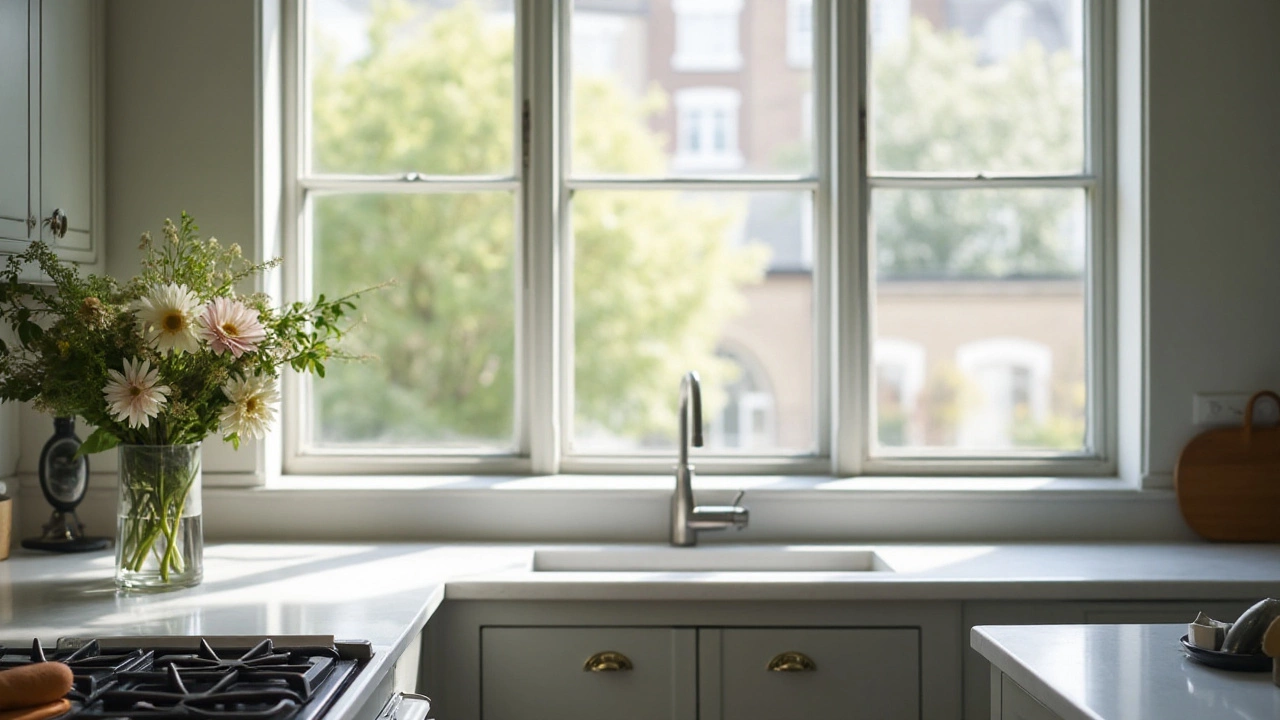
Real-Life Success Stories and Inspirations
One of the most compelling aspects of the minimalism lifestyle is the profound impact it can have on real people. Take, for example, the story of Joshua Fields Millburn and Ryan Nicodemus, known as The Minimalists. These two friends transformed their lives by embracing minimalism after realizing the corporate rat race and accumulation of possessions did not equate to happiness. They began by drastically reducing their possessions and reassessing their values, leading to new-found peace and contentment. Their journey inspired them to help others through books, podcasts, and speaking engagements, reaching millions who seek more meaningful lives. As reported in their own experiences, by stripping away the non-essential, they discovered a stronger sense of freedom and a life filled with intention.
Let's delve into another inspiring tale—a woman named Courtney Carver, who turned a life-threatening illness into an opportunity to simplify. Diagnosed with Multiple Sclerosis, Carver started her Project 333 challenge, an initiative urging people to wear only 33 items of clothing for three months. This wasn't just about limiting wardrobe; it became a catalyst for a broader lifestyle transition. As she embraced Rule 406, she found energy conservation in attire choices spilling over into other areas of her life. Carver’s story shows that minimalism isn't just about less stuff; it's about gaining more time, better health, and less stress. Her popular blog and book, "Soulful Simplicity," continue to empower others to take control of their lives by making deliberate choices.
One can't overlook the success story of Leo Babauta, who credits minimalism with transforming his life into a path of mindfulness and health. Starting as a father of six, buried in debt, and struggling with unhealthy habits, he began simplifying. Leo adopted the mantra of 'less is more,' eliminating excess in various life aspects and focusing on habits that nurtured his well-being. This shift led to the creation of his Zen Habits blog, providing practical insights that have inspired countless followers to change their lives. Babauta’s journey underscores the power of simplicity in realizing personal goals and achieving mental clarity.
"Minimalism isn’t about deprivation, it’s about alignment; aligning your actions, your lifestyle, and your possessions with your essence, your beliefs, and your priorities." – a principle often spoken about by experts in minimalism circles.
A fascinating data point comes from a study conducted by The Organization on 'Time Use and Simplification,' which found that individuals practicing minimalism reported a 65% increase in life satisfaction and a 35% reduction in stress. Such figures highlight how influential simplicity can be in improving emotional well-being and overall life quality. Real-world examples and data affirm that Rule 406 and minimalism aren’t about mere reduction but about creating spaces that enable growth, happiness, and a focus on life’s true essentials.

